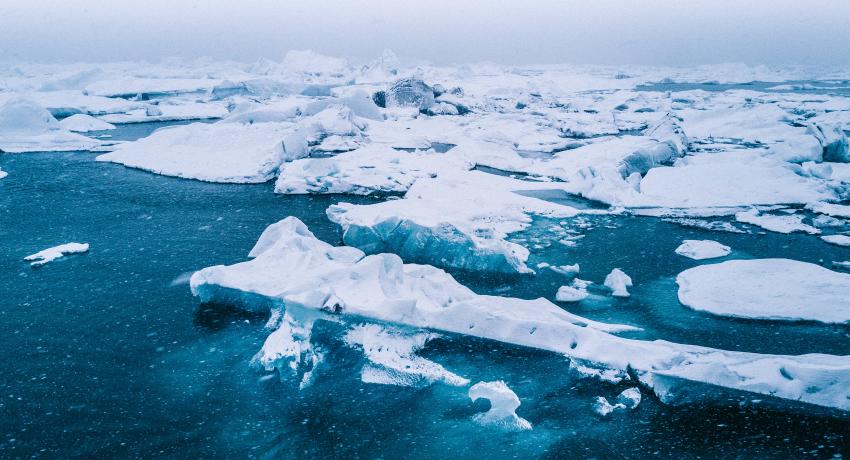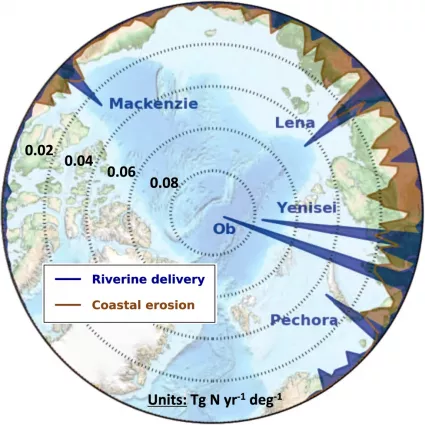New research suggests that a third of the total productivity in the Arctic Ocean is supported by nutrients supplied by river discharge and coastal erosion, highlighting their crucial role for the marine ecosystem.
Marine primary production is the foundation of the marine food chain and ocean ecosystems. It primarily occurs via photosynthesis by phytoplankton, which use inorganic carbon and nutrients to produce organic matter.
The availability of nutrients is crucial for the phytoplankton growth. Nutrients are supplied by upwelling, as well as inflows from nearby oceans and land. In the Arctic Ocean, these nutrients are believed to largely stem from areas like the Atlantic or Pacific Ocean. However, the role of the nutrients that enter the Arctic Ocean from land through rivers and erosion of coastal soils remains unclear.
A recent study published in Nature Communications, funded by the 4C project, investigated the role of nutrient inputs from land into the Arctic Ocean. Riverine fluxes in the Arctic region were estimated based on observations from the six largest rivers, while the erosion fluxes were calculated based on satellite images of the Arctic coastline and measurements of the nutrient content in these eroding soils.
The researchers estimated that nutrients from rivers and coastal erosion sustain around a third of the total productivity in the Arctic Ocean, thus playing a crucial role for the Arctic Ocean ecosystem.
Map of annual input of terrigenous nitrogen via rivers and coastal erosion (Terhaar et al., 2021)
The results of the Nature Communications study demonstrate that river discharge and coastal erosion may play a much more important role than previously believed. Furthermore, these results suggest that potential changes caused by climate change in the nutrient supply from rivers and coastal erosion may lead to changes in primary production in the Arctic Ocean over the 21st century.
Therefore, better observations of the nutrient release from rivers and coastal erosion, and their addition into Earth system models are crucially important for improving climate projections of the Arctic Ocean ecosystem in the 21st century and the consequent effects on fisheries.
References
Terhaar J., Lauerwald R., Regnier P., Gruber N. and Bopp L. (2020). Around one third of current Arctic Ocean primary production sustained by rivers and coastal erosion. Nat Commun 12: 169. DOI: 10.1038/s41467-020-20470-z.


